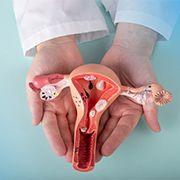Indian Diet Plan for Pregnancy
In This Article
Indian Diet Plan for Pregnancy
Nimisha
Updated on February 10, 2025
Medically verified by Dr. Arya
Fact checked by Sreemoyee

Wellness
10 minutes
Nutritional Needs During Pregnancy
This includes an increase in the intake of food during pregnancy because the growth and development of the foetus is encouraged as well as maintenance of the mother’s health. Key nutrients include:
- Folic Acid: That is very important in the prevention of neural tube defects. Present in green vegetables, oranges, beans, and food rich in vitamins.
- Iron: Crucial in the process of synthesis of a protein known as haemoglobin. Some of the rich foods include lean meat, green vegetables, lentils and fortified grains particularly cereals.
- Calcium: An essential nutrient for onset of formation of baby’s bones and teeth. Some of the great sources of calcium include; dairy products, tofu, and green leafy vegetables.
- Protein: Crucial to the development of the foetus tissues, including the brain. Present in dairy foods, egg yolks, beans, nuts, and seeds.
- DHA (Docosahexaenoic Acid): Organic unsaturated fat that helps with brain and eye function particularly in the early years of life. Sources include fish, flax seed and walnut.
- Fibre: Helps prevent constipation. Exists in fruits, vegetables, whole grains and pulses.
Vitamin D: Notable when it comes to bones. Others are sunlight, fortified milk, and fish.
 10mint
10mintSexual Health Matters: How To Maintain Your Sexual Health ?
 10mint
10mintYour Guide to Sexual Health Screening and Preventive Measures
 10 mints
10 mintsSTDs in Women: Comprehensive Guide on Symptoms and Treatments
Get a Callback Now
Sample Indian Diet Plan
First Trimester (Weeks 1-12)
Morning:
- Warm Lemon Water: Starting off with warm water with lemon helps in kick starting up the metabolism in the body.
Breakfast:
- Option 1: Vegetable upma prepared with flattened rice also called poha garnished with peanuts.
- Option 2: Wheat toast with a boiled egg & a glass of milk.
- Option 3: For breakfast, take oats porridge with fruits and nuts.
Mid-Morning Snack:
- Fruit Salad: A plate of some fruits like apples, bananas, and pomegranate.
- Nuts: A few almonds and walnuts.
Lunch:
- Option 1: Chapati which is a whole wheat bread, mixed vegetable curry, dal and yogurt.
- Option 2: Brown rice, spinach and cottage cheese, cucumber yogurt.
- Option 3: Quinoa salad accompanied with chickpeas on combined salad vegetables.
Evening Snack:
- Smoothie: Banana and spinach smoothie accompanied with a spoonful of chia seeds.
- Roasted Chana: A hot bowl of RG roasted chickpeas.
Dinner:
- Option 1: Methi (fenugreek) paratha with curd and a side of vegetable soup.
- Option 2: Vegetable pulao (rice with vegetables) with a bowl of raita.
- Option 3: Dal khichdi (rice and lentils) with a side of mixed vegetable salad.
Before Bed:
- Milk: A glass of warm milk with a pinch of turmeric for better sleep and immunity.
Second Trimester (Weeks 13-26) BOX
Morning:
- Warm Lemon Water: An apple with honey as a drink in the morning to get the metabolic system going.
Breakfast:
- Option 1: Poha, a flattened grain which is commonly consumed in India; is prepared from freshly cooked vegetables and topped with grounded peanuts.
- Option 2: Take for example; A plate of whole wheat toast with a boiled egg and a glass of milk.
- Option 3: Fruits and nuts oat porridge.
Mid-Morning Snack:
- Fruit Salad: A plate which has been garnished with cut apples, bananas and a pomegranate.
- Nuts: Almonds and walnuts if you’re looking for something that can be snacked on easily.
Examples include a handful of almonds and walnuts in case by chance somebody is looking for something that can be consumed in small portions.
Lunch:
- Option 1: Staple food is chapati (whole wheat bread) accompanied by mixed vegetable curry, dal (lentils, mixed vegetables with rice or dal), and a bowl of yoghourt.
- Option 2: The complexes are rice and brown rice, vegetarian palak paneer – spinach with cottage cheese, and a cooling recipe of cucumber raita – yoghourt with cucumber.
- Option 3: Stir fried chicken with mixed vegetables and quinoa boil chickpeas.
Evening Snack:
- Smoothie: A glass of banana and spinach smoothie and a tablespoon of chia seeds.
- Roasted Chana: Roasted chickpeas in a bowl.
Dinner:
- Option 1: This is particularly a methi (fenugreek) paratha, a side of curd and vegetable soup.
- Option 2: The simple yet tasty rice preparation – vegetable pulao, properly accompanied by raita in a bowl.
- Option 3: From the simple rice and lentils – Dal khichdi to a mixed vegetable salad.
Before Bed:
- Milk: Drinking warm milk with turmeric is considered to help in improving sleep and strengthening the immune system because of the effects of turmeric on the body.
Third Trimester (Weeks 27-40)
Morning:
- Warm Water with Soaked Almonds: A cup of diluted warm water and a handful of almonds which have been soaked in the same water.
Breakfast:
- Option 1: Lentil pancakes prepared from moong dal with minty accompaniment chutney.
- Option 2: Idlis that are steamed rice cakes eaten with spiced lentil gravy called sambar and a coconut base accompaniment called chutney.
- Option 3: Millet based breakfast porridge with fruits and nuts.
Mid-Morning Snack:
- Fruit: An apple or an orange.
- Nuts and Seeds: Sunflower seeds, pumpkin seeds and flaxseeds in equal quantities or Sunflower seeds and pumpkin seeds combined with flax seeds at the ratio of 2:3 respectively.
Lunch:
- Option 1: Jowar (sorghum) roti, Fulkop(potato stir fry), a plate of Kadugu (black pepper) rasam and curd rice.
- Option 2: Khichdi that we prepare with barley, lentils, and vegetables and then a mixed salad.
- Option 3: I took whole wheat roti with chicken curry for those who want non vegetarian food, a plate was accompanied by a portion of sautéed spinach.
Evening Snack:
- Smoothie: A berry and banana smoothie with one spoon of flax, seeds added.
- Roasted Makhana: Roasted fox nuts in a bowl.
Dinner:
- Option 1: This meal includes vegetable soup prepared from lentils and a multigrain bread and broccolini.
- Option 2: Select prepared vegetables going with biryani, raita in a dish.
- Option 3: Grilled cottage cheese with side whole bread wheat and vegetable soup.
Before Bed:
- Milk: A cup of hot milk with sight of strands of saffron.
Hydration and Exercise
Hydration:
- Water: If one is healthy it is highly recommended that they should drink between eight to ten glasses of water in a single day.
- Coconut Water: Ideal for natural electrolytes especially for the people with a very busy and active lifestyle.
- Herbal Teas: Some herbs like sage, mint, chamomile and peppermint have mild stimulating effects and therefore, avoid caffeinated herbal teas.
Exercise:
- Walking: A 30 minute walk per day.
- Prenatal Yoga: They help in flexibility of muscles and the general body and also aids in relaxation.
- Pelvic Floor Exercises: Beneficial for the improvement of the muscles in the pelvic area.
Foods to Avoid
- Raw or Undercooked Seafood and Eggs
- High-Mercury Fish
- Unpasteurized Dairy Products
- Processed Meats
- Caffeine
- Alcohol
Tips for a Healthy Pregnancy Diet
1.Small Frequent Meals: Aids in keeping your energy up; reduces nausea.
2. Balanced Diet: Make sure you are getting your proteins, your carbohydrates and good fats.
3. Folate-Rich Foods: Vital for foetal development, also comprising green vegetables or leafy green vegetables.
4. Iron-Rich Foods: You should ensure that you take meals that have iron in them such as beans, spinach, and lean meat.
5. Calcium and Vitamin D: Dairy products should also be taken for proper build up of the bones and teeth of the baby and sun is also good for the baby.
6. Avoid Junk Food: Stuffed with calories and meagre with the nutrient value.
Taking good foods has beneficial impacts for not only the baby, but also the mom.
Vegetables, fruits, eggs, nuts and milk contain key vitamins and minerals in them.
Either take a glass of warm water with lemon in it or have a few almonds soaked in water every morning.
Breakfast Options: Poha, upma, eggs and toast.
Snack Time: Those fruits which should be taken include apples and bananas and nuts such as almond and walnuts.
Lunch Ideas: Chapati and Vegetables, brown rice with spinach and paneer
Evening Snacks: Smoothies, roasted chickpeas
Dinner Options: Vegetable pulao. dal khichdi
Warm milk with turmeric in it for improving sleep and enhanced immunity.
Consume coconut water and many types of herbal teas.
Going out for a walk, special exercises as well as yoga assists in making the muscles strong.
Avoid raw/undercooked seafood, shark/OMP fish, raw milk dairy and processed meats, caffeine and alcohol.
Source Links
Healthifyme
MomJunction.
Femina

